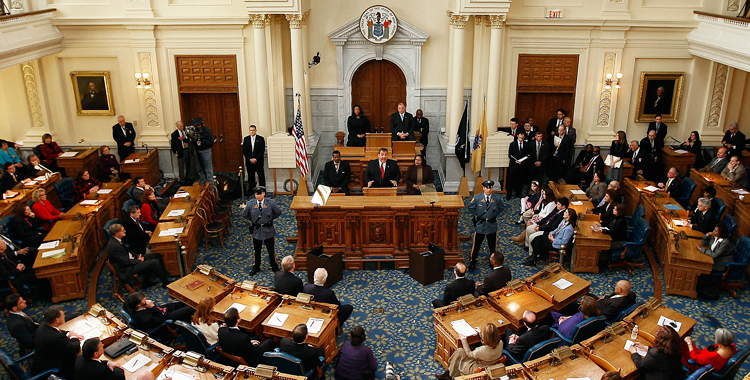Negative Impact on redevelopment linked to PILOTs
Robert S. Goldsmith, Esq.
Partner, Greenbaum, Rowe, Smith & Davis, LLP
Steven G. Mlenak, Esq.
Associate, Greenbaum, Rowe, Smith & Davis, LLP
May 17, 2019
For decades, New Jersey has experienced notable success with redeveloping many of its distressed areas by affording municipalities the ability to provide tax incentives to redevelopers (e.g. PILOTs). These incentives encourage redevelopers to accept the substantial risks and additional costs that come with most redevelopment projects – for example, the risk factor for unknown markets and the often-required construction of highly-amenitized, elevator buildings, and structured parking (at a cost of roughly $25,000 per space vs. $3,000 per space in a surface lot). These are not the garden apartments of the 50s, 60s and 70s. Without such incentives, many of the highly touted redevelopment projects that have helped revitalize so many of the state’s distressed areas would have been economically infeasible. Despite this proven track record of success, new legislation pending before the New Jersey Legislature appears fast-tracked to negatively impact redevelopment.
S59, entitled “Requires municipalities to share certain payments received in lieu of property taxes with school districts; informs counties and school districts of application for property tax exemptions,” would require that municipalities receiving payments in lieu of taxes (PILOT) remit a portion of such payments to its school district(s), including regional school districts, in an amount calculated by multiplying the number of school-age children attending public school that reside in an approved project by the district’s budgetary base cost per pupil. The redeveloper responsible for making the PILOT payments would be required to certify in its annual audit the number of school-age children residing within the approved project who attend public school. For non-residential projects or mixed use projects, the municipality would need to transfer 5% of annual service charges to the school district(s).
S59 would essentially remove the financial incentive that municipalities would have to enter into PILOT arrangements for residential projects and some non-residential projects. In addition to greatly reducing a municipality’s take-home revenue from the PILOT, municipalities would be forced to undertake significant risk when granting tax abatements for residential projects. Conceivably, as there are no caps or restrictions on the amount of the proceeds to be sent to the school district, a residential project with a high percentage of school-age children could result in the municipality having to remit its entire revenue to the school district(s), thus resulting in less revenue than had the municipality denied the application. It is likely that this bill will see some municipalities attempting to shift that risk to the redeveloper to cover some or all of this payment to the school district(s), thus increasing the redeveloper’s risk.
Redevelopers will have a very difficult task getting all of their tenants to provide the information necessary for the redeveloper to certify (a) the number of schoolchildren residing in the project and (b) whether those schoolchildren attend public school. Further, the bill does not speak to how PILOTs for condominium redevelopment projects would be handled. The redeveloper will be out of the picture after the units are sold.
Should S59 be adopted, redevelopers should also be cautious of housing discrimination issues, as a redeveloper, knowing that they will be responsible for tens of thousands of dollars per child, could inadvertently violate anti-discrimination laws by marketing their dwellings to encourage non-families.
Yet another issue to consider is that S59 does not address the actual costs of schoolchildren, but instead generalizes those costs to the average cost per pupil in that district. If a school district has a budget of $1 million with 100 students, its average cost per pupil is $10,000. If a new student enrolls in the district, the cost of running the district does not increase to $1,010,000. Rather, in all likelihood, the average cost per pupil would be reduced to around $9,900. No new teachers or staff would be hired, and no buildings would need to be constructed. There would be no incurred capital costs. It is likely a matter of some additional supplies. Even if a redevelopment project added ten or twenty schoolchildren, they would likely be of varying ages and spread out at various grade levels. Further, research has revealed that affordable housing projects typically yield a higher number of schoolchildren than market-rate units. This bill, therefore, could have the unintended consequence of discouraging affordable housing.
Clearly the Legislature is concerned with certain projects which have had the apparent effect of creating an education budget shortfall. In almost all instances, however, such “shortfall” is only an illusion as the budget approved by a school district is required by law to be funded through taxes collected by the municipality. The municipality is required to provide the school district with 100% of its budgeted income. It is required to expend the resources to perform the assessments, issue the tax bills, collect the taxes, prosecute the non-payment of taxes and defend against tax appeals. In the event of a tax appeal which results in a reduced assessment either by judgment or settlement, the municipality is responsible for issuing the full refund for both the municipal and school district portions of the taxes collected without any obligation on the school district to refund any amounts. Legislation such as S59 is the solution to a problem that does not exist. No more evident is this than committee amendments made to S59, which “require a school district to reduce its property tax levy by the amount of any payment received from a municipality out of a payment in lieu of property taxation made by an urban renewal entity.”
S59 recently passed out of the Community and Urban Affairs Committee by a 5-0 vote. Downtown NJ opposes the adoption of S59.
Greenbaum, Rowe, Smith & Davis is a recognized leader among New Jersey law firms, with deep roots in the state and a far-reaching knowledge of New Jersey legal issues. Firm partner, Robert S. Goldsmith, Esq is also the President of Downtown New Jersey. More information at www.greenbaumlaw.com.


